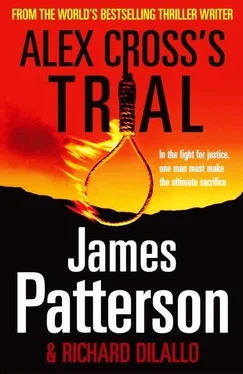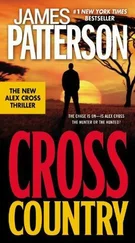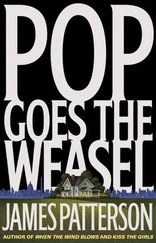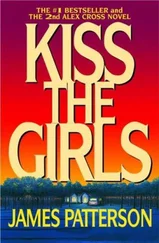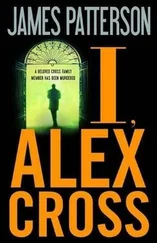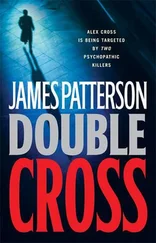They gawked at us. They yelled. They mocked.
“Kiss me,” I whispered to Moody.
She looked up at me as if I were insane, but she didn’t say no.
I leaned down and brought my lips to hers.
A cry of pain ran through the crowd.
A woman’s voice: “Look, he got what he wanted – a nigger girl to take to his bed.”
A man’s voice from behind me shouted, “Y’all goin’ to hell and burn for all time!”
“Niggers! You’re both niggers!”
“You make me sick in my gut!”
“Get out of here! Just get out!”
I whispered, “You ready to run?”
Moody nodded.
And we ran, and ran, and ran.
WE WERE HALFWAY to the Quarters before the most persistent of our pursuers gave up. We stopped to catch our breath, but I kept an eye out, in case anyone was still following.
As it dawned on me what we had done, I realized that I was – well, I was delighted . Who would have thought two people holding hands could make so many wrong-minded people so very unhappy? We had put the citizens of Eudora in an uproar, and that realization warmed my heart.
I had abandoned my bicycle downtown. Maybe the mob had strung it up in a noose by now.
As Moody and I walked the muddy boards that passed for a sidewalk, folks began coming out of their houses to have a look at us. As fast as we’d run, news of our public display seemed to have preceded us.
“Y’all damn crazy,” said one old lady.
“Naw, they in love,” said a young man beside her.
“Well, hell, if that ain’t crazy, I don’t know what is!”
“No, ma’am,” I said. “We’re not crazy and we’re not in love, either.”
“You just tryin’ to cause trouble then, white boy?” she demanded.
“All I did was kiss her,” I explained. “But we did cause some trouble.”
The old lady thought about it a moment, then she cracked a smile.
It was like a photographic negative of our march through Eudora. By the time we got to the crossroads by Hemple’s store, we had a crowd of spectators tagging along with us.
One of the old men looked up from his checkerboard, his face grim. “ Now see what you done,” he said to me. “You done kicked over the anthill for sure. They comin’ down here tonight, and they gonna lynch you up somethin’ fierce. And some of us, besides.”
“Then we’d better get ready for them,” Moody said.
“Ready?” said the other checkers player. “What you mean ready, girl? You mean we best say our prayers. Best go make the pine box ourselves.”
“You got a gun for shootin’ squirrel, don’t you?” said Moody. “You got a knife to skin it with, don’t you?”
The old man nodded. “Well, sho’, but what does that–”
“They can’t beat all of us,” Moody said. “Not if we’re ready for them.”
The people around us were murmuring to one another. Moody’s words had started a brushfire among them. “Let ’em come!” cried a young man. “Let ’em come on!”
Moody looked at me with soulful eyes. And then she did something I will never forget. I will carry it with me my whole life, the way I have carried Marcus’s kindness to Mama.
She took my hand in hers again. Not for show, because she wanted to. We walked hand in hand to Abraham’s house.
I THOUGHT I would be standing guard alone on the porch that evening, but at midnight Moody appeared – wearing a clean white jumper, of course.
“I couldn’t sleep, thinking how you hadn’t had nothing to eat the whole day long.” She set before me a plate of butter beans, field peas, and shortening bread.
The minute I smelled it, I was starving. “Thank you kindly,” I said.
“You’re welcome kindly,” she said, easing down to the chair beside me.
I dove in. “There was this old colored lady who raised me,” I said, “and she always sang, ‘Mammy’s little baby loves short’nin’-’”
“Hush up, fool!” Moody said.
I held up both hands in surrender. “All right, all right,” I said, laughing.
“You can’t help it, I reckon,” she said, shaking her head. “No matter how hard you try, you are always gonna be a white man, the whole rest of your life.”
“I expect I am,” I said, taking a bite of bread.
We watched the moon rising over the swamp from Abraham’s front porch. We heard the gank, gank of the bullfrogs and the occasional soft call of a mourning dove staying up late.
We sat in silence for a while. Then Moody spoke.
“You think they coming tonight?”
I sighed. “You know they’ll want to teach us a lesson.”
We heard a groan from inside. Moody leaped up and I followed her into the parlor.
Cousin Ricky was there, at Abraham’s bedside, reading from the open Bible on his lap. Abraham looked too peaceful to have given out that groan just a moment before.
“You are the light of the world,” Ricky read. “A city set on a hill cannot be hid.”
We crept back out to the porch. After a time Moody said, “You made Papaw’s last summer a good one.”
“He’s one of the finest men I’ve met,” I said. “Of course, you know that.”
She touched the back of my hand. It crossed my mind that we might kiss each other now. Also it crossed my mind that we might not.
I’ll never know what could have been.
Suddenly there was a gunshot, then another, the clatter of hoofbeats, lots of horses.
We stood up, unable to see the men yet, but we could hear their voices in the darkness. We hurried inside before they could drop us where we stood.
“There they go, Sammy,” a man yelled. “Nigger-lovin’ Yankee and his nigger whore.”
It was unfolding just like the first White Raiders attack: gunfire everywhere, men jockeying their horses into position in the dark, the hatred in their voices.
This time though, there was a difference.
The Eudora Quarters was ready – at least I hoped so.
THERE HAD NEVER BEEN A FIGHT like this one in the state of Mississippi, and maybe anywhere else in this country. One way or the other, we were about to make some history.
The Raiders must have thought we were too stupid to know what was going to happen or too scared to defend ourselves. It never occurred to them that Moody and my little stroll down the sidewalk might have been deliberate, a provocation, and that they were riding into a trap.
There were nine of them this time. That’s how confident they were that we wouldn’t resist. What arrogance – to come into the Quarters with this pack of their friends, nine of them among hundreds of Negroes.
“Ricky, go around!” Moody yelled through the window. “We’ll meet you on the other side!”
“You stay here,” I told her. “Your job is to guard Abraham.” She started to argue but gave up when I placed a snap-load pistol in her hand.
I stuck a loaded pistol in each of my trousers pockets, lifted the shotgun, and swung around just in time to stop three men dead in their tracks at the door.
I recognized them at once. There was Roy, who’d been shot in the arm in the first White Raiders attack, and Leander Purneau from the cotton gin. Best of all was the fat redheaded man in the middle, the surprised-looking fellow at whose nose both barrels of my shotgun now pointed. This was none other than Henry Wadsworth North, former defendant, murderer.
In my mind I squeezed the trigger and watched his limited supply of brains spatter all over the screen door behind him. I felt a jolt of pleasure at the prospect of being the one to end Henry North’s life.
But I couldn’t shoot the man like this. It just wasn’t in me.
Читать дальше
